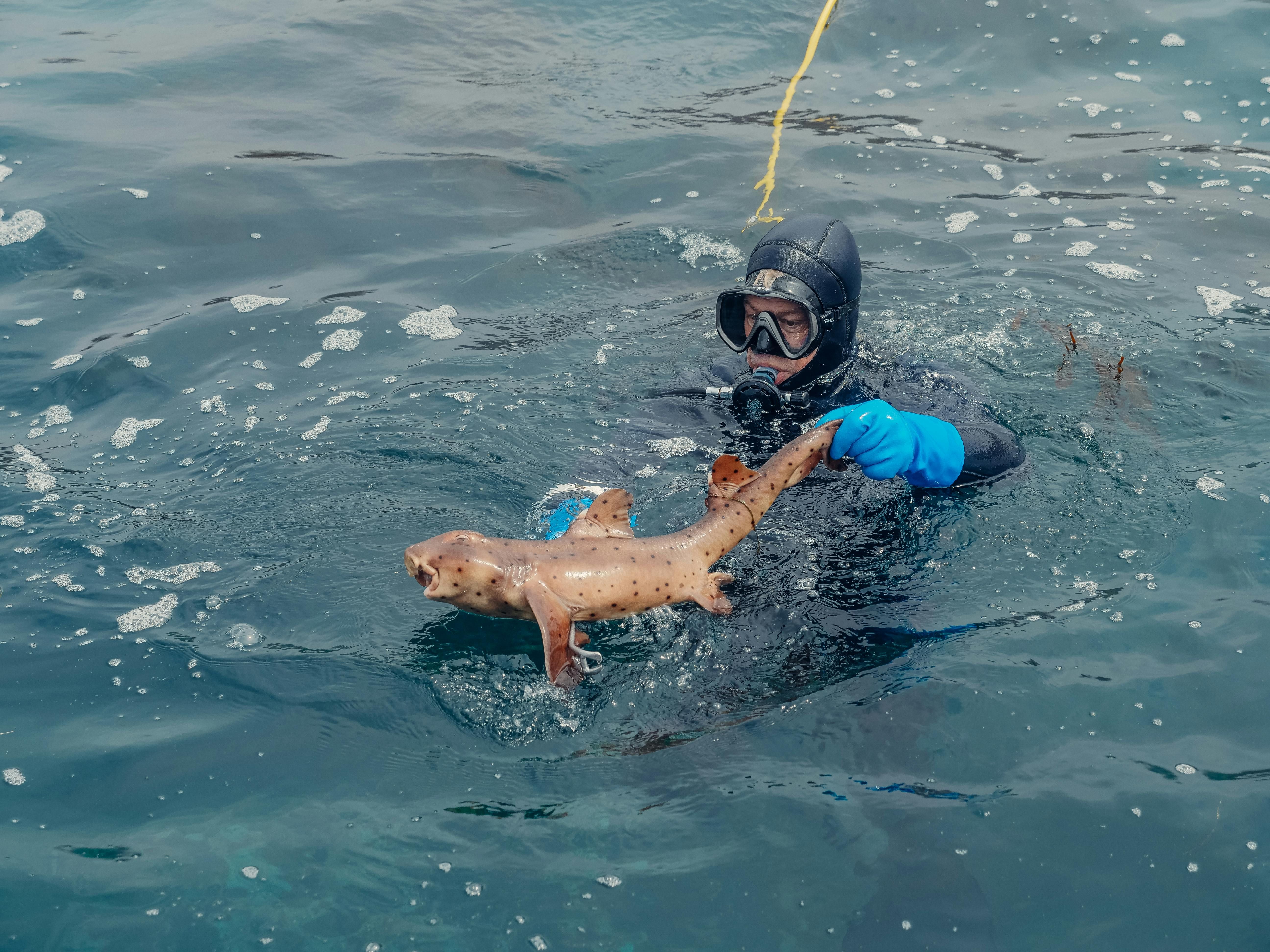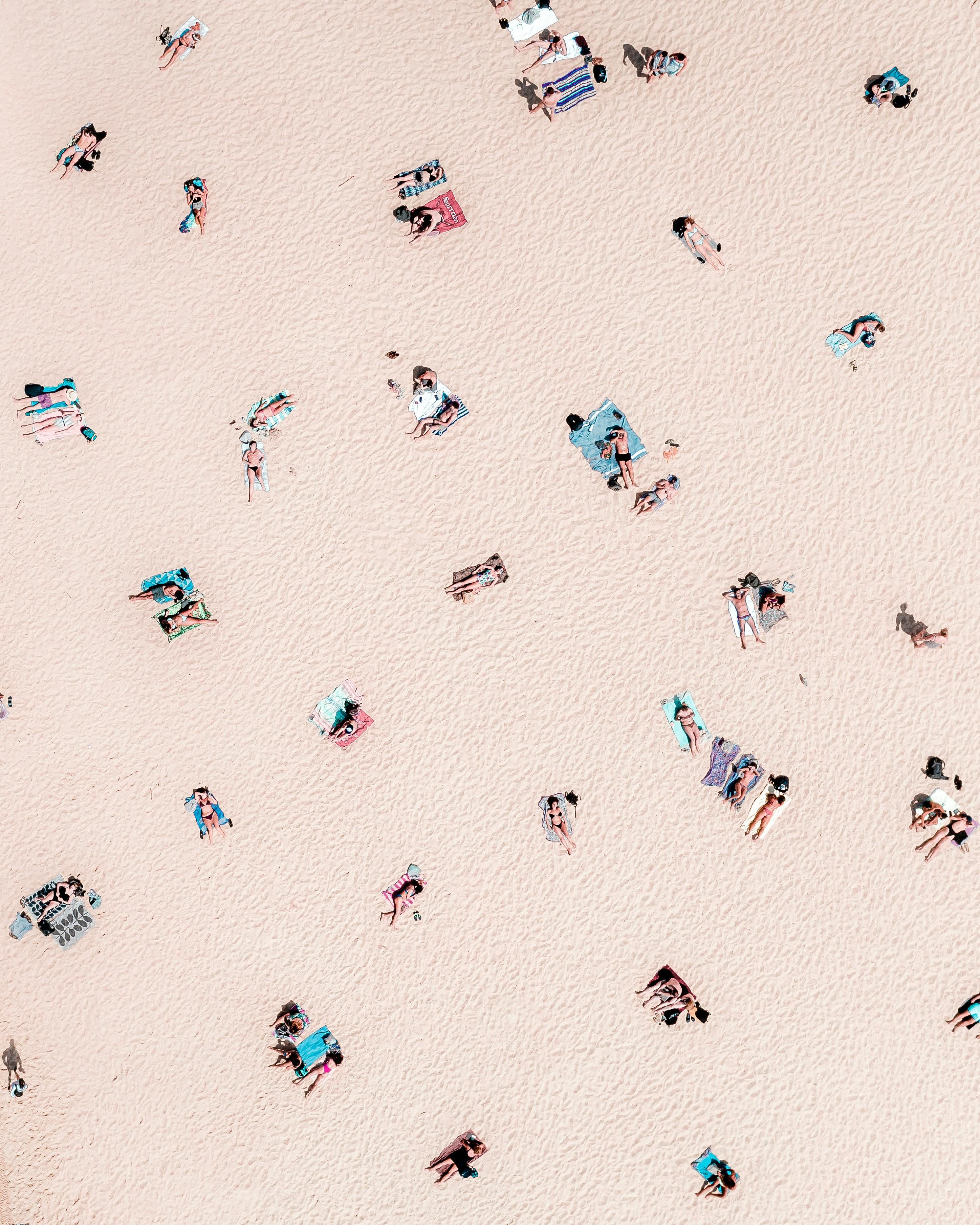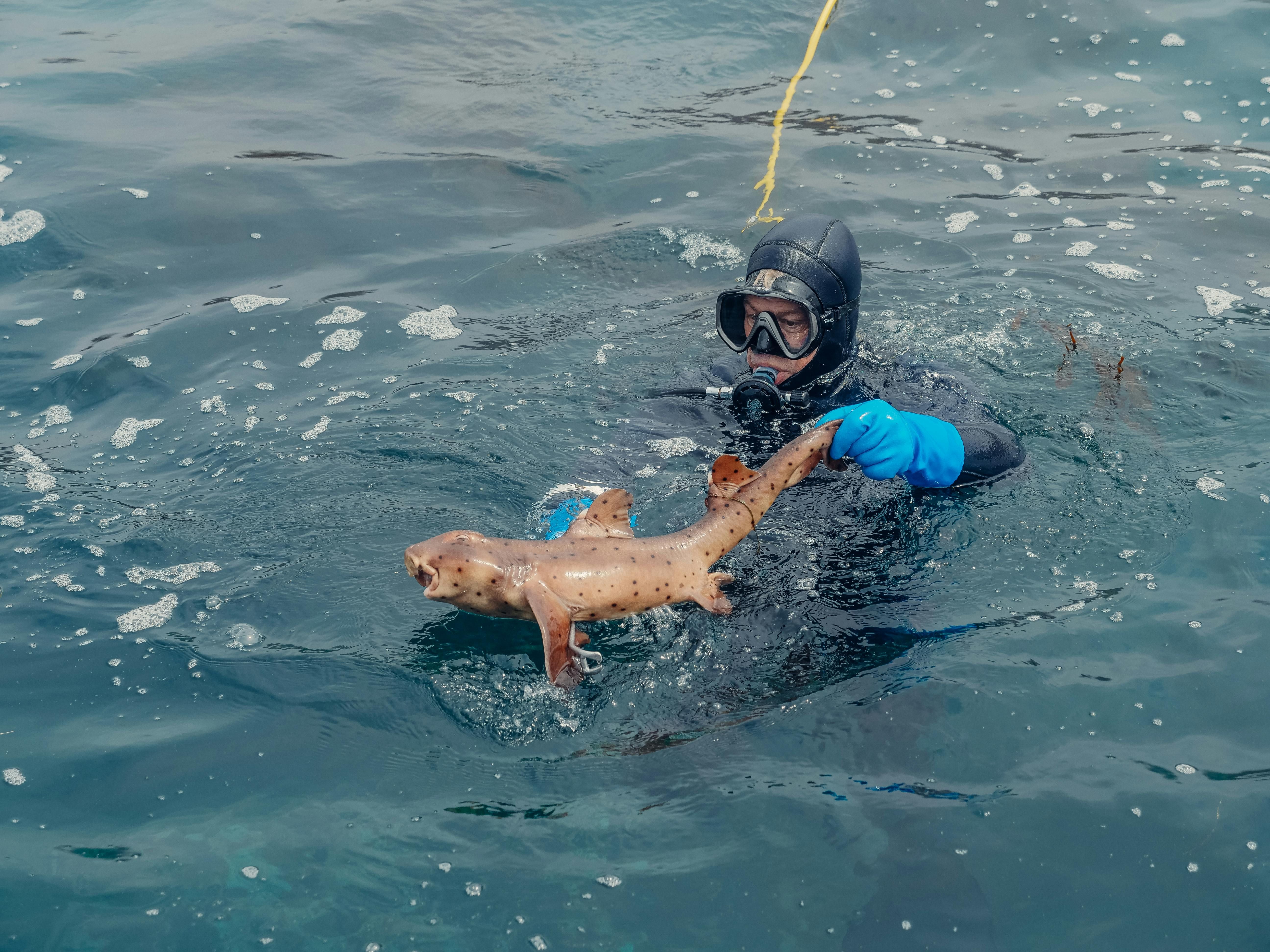Shark preventative measures at popular Sydney beaches are facing opposition.
Shark Nets on Aussie Beaches: A Controversial Privacy and the Ocean Debate
Step into the heated debate surrounding shark nets in Sydney, Australia, a contentious topic that pits safety and tradition against environmental conservation.
In the sun-soaked shores of Sydney, where 90% of the population resides within a stone's throw of the coast, a lyrebird's chirp competes with the constant roar of waves. This picturesque retreat is home to a diverse marine ecosystem, including various shark species - tiger, bull, and great white sharks being the most notorious. Here, a divisive issue unfolds: the use of shark nets designed to protect beachgoers, a disputed solution with far-reaching consequences.

A legacy handed down through generations since 1937, shark nets have been a constant sight along the beaches of New South Wales (NSW). But, in a shifting tide of public opinion, doubts about their effectiveness persistently surface.
Opponents argue that these nets are outdated and irrelevant in modern beach safety. Studies suggest that they are not effective at keeping people safe, and their indiscriminate catch of marine species has harmful effects on the ocean ecosystem. Between September 2023 and April 2024, 255 marine creatures were entangled in shark nets in NSW, with only 15 of those animals being the target species like great white, tiger, and bull sharks. The remaining creatures were rays, turtles, dolphins, fish, and non-dangerous sharks.

Authorities argue that they take steps to mitigate harmful entanglements. Marcel Green, from the NSW Department of Primary Industries and Regional Development (DPIRD), claims that whale alarms and dolphin pingers are employed to deter these animals from the nets. However, critics counter that these efforts are inadequate, as the nets are still responsible for the deaths of many innocent creatures.
This year, amidst growing opposition to shark nets, they were removed a month earlier than planned, thanks to increased turtle activity in April. In a recent survey, none of the eight councils where shark nets are currently used elected to continue their employment next season, according to Humane World for Animals. The NSW government is now considering whether shark nets have a future in their waters.

Yet, the controversy doesn't lie solely in their inefficiency and environmental impact. Instead, it's rooted in a political minefield, where the discourse becomes murky and emotive. "I do not see anyone concerned with the safety of swimmers and surfers. I see people concerned with the next election and with political survival," Christopher Pepin-Neff, an associate professor of Public Policy at the University of Sydney, told CNN.
The shark-net issue came to a head in February during a heated local council meeting in Randwick, home to the beloved Bondi Beach. Critics argued that the nets do not form a barrier, do not deter, deflect, or stop sharks from swimming at beaches and that their goal is to entangle and kill whatever swims into the net. Meanwhile, proponents highlighted the perceived safety they offer and their historical use.

While the odds seem to be tipping against the shark nets, their fate remains unclear, with the final decision resting in the hands of the NSW government. For now, the debate rages on, leaving many to question the merits of tradition, safety, and the well-being of our seas.
Whether you're a swimmer like Kim Miller, who accepts the risk of entering a shark's natural habitat, or a marine advocate like Sarah Han-de-Beaux, fighting tirelessly for the protection of precious creatures, the future of Sydney's beaches is a vulnerable tide, awaiting the decision of state officials.

- In the midst of Australia's controversial debate over shark nets, critics argue that their deployment, a tradition traced back to 1937 in Sydney, Australia, is both ineffective at ensuring swimmer safety and harmful to the ocean ecosystem.
- Surprisingly, a study revealed that out of the 255 marine creatures entangled in shark nets in New South Wales (NSW) between September 2023 and April 2024, only 15 were the intended target species, with the remaining 240 being non-dangerous sharks, rays, turtles, dolphins, and fish.
- The divisive issue of shark nets extends beyond their effectiveness and environmental consequences, as it delves into a political quagmire, with opinions swayed by election ambitions and political survival, as observed by Christopher Pepin-Neff, an associate professor of Public Policy at the University of Sydney.




